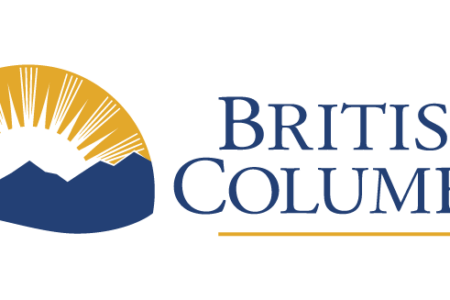Weekly newsletter from MLA/Minister Conroy
BC is a great place to live, but global inflation has made life more expensive for everyone.
In the face of these challenges, we are supporting people to build good lives here in BC, and are taking action to put money back into people’s pockets through new and expanded programs.
This summer, families in British Columbia will see increased BC Family Benefit payments arriving in their bank accounts, providing crucial financial support amid rising expenses driven by global inflation and high interest rates.
On average, families will receive $445 more than last year, thanks to a one-year bonus added to the BC Family Benefit payments. About 340,000 families with children, which is 66,000 more than last year, will benefit from these monthly deposits starting in mid-July. This 25% increase means a family of four could receive as much as $3,563 annually, while a single parent with one child could receive up to $2,688.
The BC Family Benefit is delivered through direct deposit or cheque, combined with the Federal Canada Child Benefit, to ensure families receive the support they need.
To make accessing benefits easier, the province has launched the BC Benefits Connector, an online resource providing clear steps on accessing government benefits and programs. Visit BC Benefits Connector for more information.
In addition to the expanded BC Family Benefit, the Province is taking further actions to help with the cost of living, including:
- A fourth ICBC rebate
- Keeping hydro rates low and providing the BC Electricity Affordability Credit
- Making prescription birth control free
- Providing free transit for kids
- Offering one round of in-vitro fertilization (IVF) for free
- And more actions you can learn about here
Happy Canada Day!
Canada Day is a time to come together to celebrate this wonderful country we call home. Let’s celebrate our country, and reflect on what it means to us and how we can make it a more welcoming place for all. Our diversity is a strength, and we are at our best when everyone is free to be themselves – no matter their faith or background, who they love, or how they identify.
The Community Adult Literacy Program (CALP)
The Ministry of Post-Secondary Education and Future Skills invests $3.4 million annually to support the Community Adult Literacy Program (CALP). CALP funding is allocated to community organizations, Indigenous-controlled organizations, and public post-secondary institutions to deliver adult, family, and Indigenous literacy programming across British Columbia. In 2024-25, the CALP funding will support 102 literacy programs from 71 providers in 132 communities across B.C. including the Columbia Basin Alliance for Literacy!
It is summer, and we’re getting warmer weather to mark the beginning of the season. While temperatures are still fairly mild in BC, summer brings the potential for heat events. Knowing what the different types of heat alerts mean for you and your community can help you prepare. Taking steps ahead of time to make sure you can stay cool can help keep yourself and others safe in the heat. Visit https://Gov.bc.ca/ExtremeHeat for resources to help you prepare.
B.C.’s future powered by clean energy
For the first time, BC Hydro will provide rebates for the installation of rooftop solar and battery-storage systems. This will make it easier for people and businesses to generate their own electricity, reduce their energy bills, and deliver clean energy back to the electricity grid. Eligible homeowners can receive BC Hydro rebates totaling as much as $10,000 for installing a qualified solar photovoltaic (PV) system and battery-storage system together.
Rural connectivity benefits people, economy
A new report by BC Stats has found that connecting underserved rural and remote communities to high-speed internet brings significant economic benefits to people throughout British Columbia. The report reveals that the province’s investment yields more than $8 in economic growth for every $1 invested and will benefit more than 73,000 rural households. The report forecasts that the province’s $290 million investment in 132 rural connectivity projects will generate $2.5 billion in economic benefits, or nearly $14,000 per connected person, leveraging over $800 million from other sources for a total of $1.1 billion in funding for rural B.C. broadband projects.
Bridging Rural Homelessness and Well-being | Selkirk College would like to thank those who participated in the 2024 West Kootenay Homelessness Response Summit. It was an inspiring two days of learning and commitment to actionable steps for community-driven change. We are pleased to share with you the following materials about the summit:
- Summit Summary: The event overview includes the eight SMART Actions developed.
- Event Video: A short video highlighting the summit.
- Media Release: A media release that went out this week sharing some details of the event. Both Selkirk College and Selkirk Innovates social media have shared details of the event. You can find us on Facebook, LinkedIn, and Instagram.
More than 4,000 homes built for people, thousands more on the way through housing targets
Six-month progress updates from the first 10 priority communities selected for housing targets by the province show that more than 4,000 net new homes have been built for people and more are coming as the second set of targets are released. We are starting to see progress with record levels of housing starts in 2023 and we are on pace to meet or exceed that level in 2024. We will continue to collaborate meaningfully with municipalities to encourage faster creation of homes so people can stay in the communities they love.



























Comments